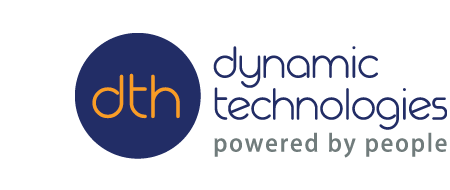The IT and tech industry are experiencing unprecedented growth. This ever-increasing demand has resulted in a market where finding qualified candidates is a challenge at both a local and global level. The exponential growth in technologies such as AI engineering, cloud computing, machine learning, cyber security and big data requires a constant influx of new talent, but skills shortages run across the technology spectrum as the world undergoes massive digital transformation. However, technical expertise is just one part of the equation.
Employees moving countries for better pay, the international job market opening up to remote workers and a lack of sufficiently skilled people has resulted in the South African tech industry being drastically under-serviced. This means that competition is fierce and there is a trend for employees to move for nominal increases. Not only do employers have to find recruits with the requisite scarce skills, but they also must persuade them to stay.
Kelly Britz, Managing Director of Dynamic Technologies group company Dynamic Talent, says: “An important focus for us has been to engage and work with some of the best talent acquisition specialists in the industry. Our people fully understand the tech landscape and know where, how and when to approach tech talent. Getting the basics correct is key, and for any hiring manager, driving relationships and networks play a major role.”
Digital skills aren’t the only skills affecting the industry. Managing Director of Dynamic Technologies’ group company Dynamic DNA, Prudence Mathebula, says they have noticed more prospective clients asking about the candidate’s work readiness and soft skills training than the actual technical course content. She says: “Workplace readiness equips the youth to bridge the gap between the technical and soft skills required, enabling them to build a solid foundation in their career.”
The internship programme at software testing firm and Dynamic Technologies group company Inspired Testing has also taken steps to address this concern. The programme combines work skills, soft skills and individualisation (the development of individual traits) to provide a solid foundation on which interns can build. The Inspired Academy is another company asset to train resources while also providing external clients and companies with the opportunity to upskill their own teams or individuals. This type of skills development is a core investment of the business and one that Inspired Testing understands is vital to addressing the scarce skills shortage.
Britz has some advice for those looking to enter the tech job market. Key areas to focus on, she says, are new and trending technology languages, cloud-based solutions and having a solid understanding of the best principles and practices. “Tech is constantly changing and learners need to regularly scour tech platforms such as Stack Overflow, LinkedIn, Udemy and Git to follow the trends.” It’s also important to bear in mind that the tech industry is not just for those who studied specific degrees or courses. There is a broad range of prior learning and natural affinities that can benefit the sector, which means a move into tech is within reach of many who may not have considered themselves candidates. “Problem-solving abilities, mathematics, engineering and even marketing qualifications are highly sought after,” says Britz.
With remote working a major benefit for many employees, André Barnard, Chief People and Cultural Officer at Inspired Testing, says: “Instead of fighting the tide of an inevitable social transition, smart companies are looking at different ways of turning the tide, so to speak, to find a new way forward. For starters, this requires an open and honest line of communication with your staff, because ultimately, we’re all in a relationship together. How do we offer solutions that nurture their well-being, while progressing their careers and, at the same time, advance our competitiveness and service to our clients?”
The tech industry is an unpredictable space for employers. The current state of the industry means market-related salaries (at a minimum) are a must, while company benefits and firms that promote a healthy work-life balance are highly sought-after. Inclusivity, professional development and flexibility also contribute positively to retaining skilled staff. Britz maintains that to remain attractive as employers, companies must implement market-based solutions as best and as quickly as they can. She says: “Keep your employees engaged by offering constant training, certifications and have regular knowledge-sharing sessions. Offer a market-related salary from the get-go and drive autonomy and decision-making within your teams.”
Share
Editorial contacts
Kelly Britz
Managing Director
Dynamic Talent
kelly@dynamictalentglobal.com
Prudence Mathebula
Managing Director
Dynamic DNA
prudence@dynamicdna.co.za
André Barnard
Chief People and Cultural Officer
Inspired Testing
abarnard@inspiredtesting.com
On behalf of Dynamic Technologies
Linda Wilkins
Wilkins Ross Communications
communications@wilkinsross.co.za
